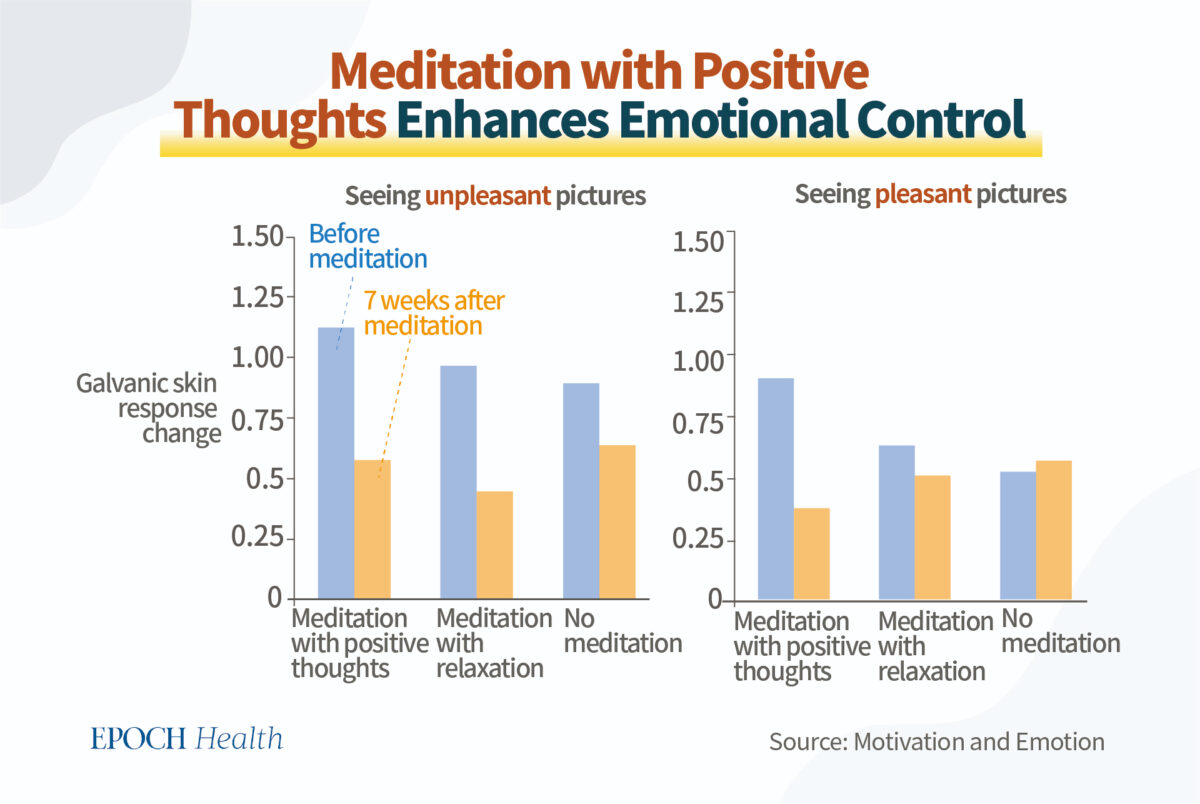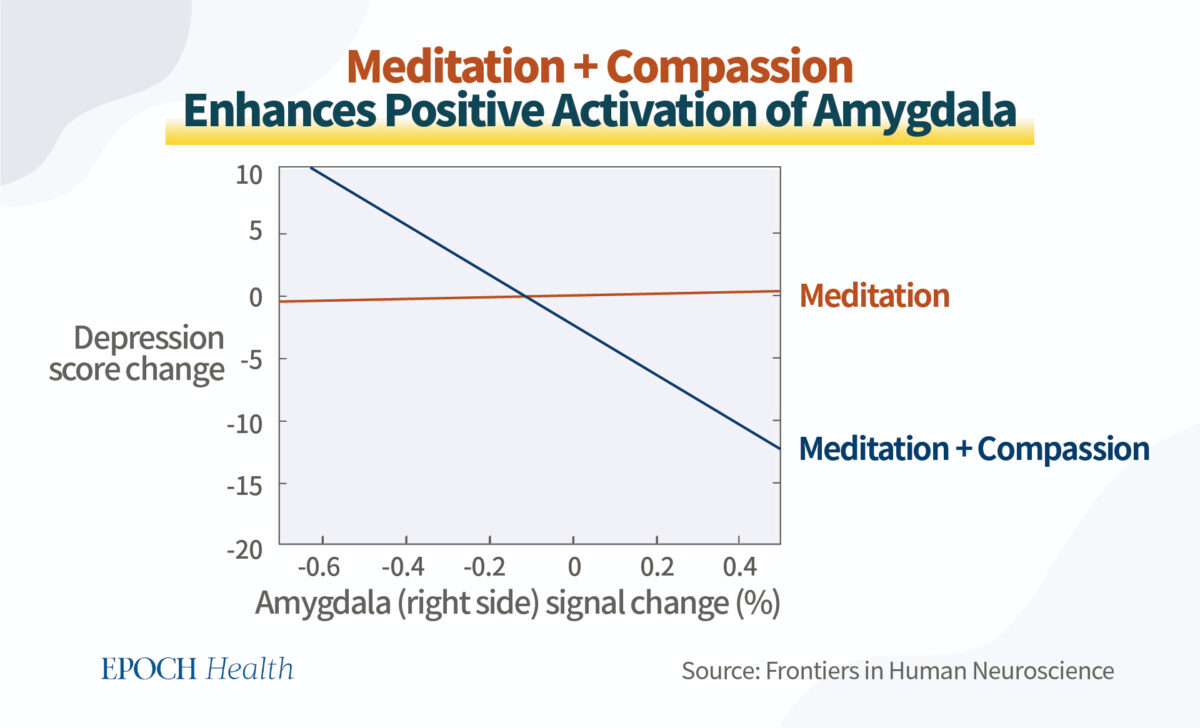If we didn’t learn to manage our emotions when we were children, we will need to learn as adults

(Brittany Risher/Shutterstock)
At the office, your co-worker is always mumbling at their computer screen. At home, your partner left his socks on the floor—again. And now, one of your children has decided to take up singing off-key renditions of songs from “Frozen” as their new favorite activity.
These kinds of situations happen every day, and if you’re feeling irritated by them, you’re not alone.
Irritability is a state that involves feelings of anger or frustration, of being impatient and quickly annoyed, especially over small things.
With the ongoing global health crisis, many of us have been left feeling frustrated, overwhelmed, and irritated due to the absence of clear information and to doubts concerning vaccine requirements. The ongoing experience of these feelings can wreak havoc on our well-being.
Irritability and Its Common Signs
People might feel fine in one moment, but a small annoyance might set their feelings off in a different direction the next—creating a more sensitive response to stress.
Some common signs of irritability include:
- Agitation, frustration, and annoyance
- Confusion and difficulty concentrating
- Difficulty making accommodations or changing plans
- Excessive sweating
- Fatigue
- Increased breathing rate
- Rapid heartbeat
- Oversensitivity
- Short temper
- Tension
Irritability is often described as a trait. That differs from anger, which is an affective state, and from reactive aggression, which is a behavior.
Irritability is defined as being prone to anger. A series of recent studies explored the relationship between irritability and depression.
In 1917, Sigmund Freud, in one of his most important clinical works, “Mourning and Melancholia,” described melancholia as involving “self-directed hostility originally directed toward others,” underlying what he described as “the undoubtedly pleasurable self-torture of melancholy.”
Are Irritability and Anger Bad?
Many may ask, “Are irritability or anger bad emotions?” Modern psychologists would say “not necessarily.” Why? Scientists would say that anger is a natural, adaptive response to threats.
It inspires powerful aggressive feelings and behaviors to fight and defend oneself when one is attacked. One could say that a certain amount of anger is essential to survival.
Diseases Can Cause Irritability
Most people feel irritable from time to time. Some people feel irritable on a more regular basis.
It’s important to identify the source of irritability.
The extent to which physical things can cause psychological issues is often underestimated. In some cases, physical disease can cause irritability or anger as a side effect.
Below is a list of potential causes of irritability:
- Common physical causes include sleep deprivation, low blood sugar, ear infections, toothaches, some diabetes-related symptoms, certain respiratory disorders, and flu.
- Several common psychological causes of irritability include stress, anxiety, and autism. Some mental health disorders have been associated with irritability, including, but not limited to, depression, bipolar disorder, and schizophrenia.
- Some medical conditions that cause hormonal changes can also affect your mood. Examples include menopause, premenstrual syndrome, polycystic ovary syndrome, hyperthyroidism, and diabetes.
Irritability or Anger Can Also Cause Diseases
Not only can physical and psychological discomfort cause irritability or anger, but the constant flood of stress chemicals and associated metabolic changes that go with ongoing unmanaged anger can eventually cause harm to health, too.
Some short- and long-term health problems that have been linked to unmanaged anger include headache, insomnia, increased anxiety, depression, high blood pressure, skin problems such as eczema, heart attack, stroke, and digestion problems such as abdominal pain.
Factors of Irritability: Why Are Some More Easily Irritated Than Others?
According to Dr. Jerry Deffenbacher, a psychologist who specializes in anger management, people who are easily irritated may have a lower tolerance for frustration, inconvenience, or annoyance.
Recent studies suggest that both genetic and environmental factors play a significant role in determining a person’s trait level of irritability.
People who are easily angered often come from families that are not skilled at emotional communication and who may live in a chaotic environment.
The association between irritability and depression is somewhat explained by shared risk factors such as genetics, family history of depression, shared temperamental and personality characteristics, negative parenting styles, and socioeconomic factors.
Why Is Emotional Regulation So Important?
Knowing the cause, however, doesn’t mean that it’s OK to lash out at every person or object that’s irritating or annoying. In an article in Psychology Today, Dr. Gregg Henriques, a professor of psychology at James Madison University, describes all basic emotions as being adaptive or maladaptive.
Henriques made his viewpoint clear by quoting from Aristotle’s “Nicomachean Ethics”: “Anybody can become angry, that is easy; but to be angry with the right person, and to the right degree, and at the right time, and for the right purpose, and in the right way—that is not within everybody’s power; that is not easy.”
“Negative emotions,” according to Henriques, “are maladaptive if they are under-regulated, chronically accessible, have low thresholds, and lead to problematic behaviors that increase suffering and impairment.”
We can’t avoid being irritated, nor can we change others, but we can always learn to regulate or control our reactions. It’s a skill to be able to regulate emotions, which takes time to learn and improves with practice.
The benefits of emotional regulation come through acting assertively without being aggressive and can help one maintain healthy, peaceful relationships.
Emotions can be regulated through problem-solving, asserting oneself, and reappraisal of a situation, leading to mood improvement and better health, and, in the long run, can increase compassion and empathy for others.
Can Emotional Regulation Be Learned?
There are several good methods to learn how to regulate emotion.
The National Mental Health Association suggests that the three main approaches to regulating emotions are through expressing feelings, suppressing anger, and calming oneself. The healthiest way to express angry feelings is in an assertive, nonaggressive manner.
“To do this, you have to learn how to make clear what your needs are, and how to get them met, without hurting others. Being assertive doesn’t mean being pushy or demanding—it means being respectful of yourself and others.” the National Mental Health Association states.
Suppressing and redirecting anger, and calming oneself down, controls outward behavior as well as internal responses, helping to lower heart rate and regain calmness.
Tips for Practicing Emotional Regulation
Emotional regulation is one of the early skills learned as children, often from one’s family. And if those skills weren’t learned in youth, it’s never too late to start.
Try these techniques when feelings of anger arise:
- Take a break: If you find yourself frustrated at work, or in a stressful environment, try taking a timeout or simply walk away from the situation for a few minutes.
- Practice relaxation techniques: Relaxation is a skill that you can learn over time. When you recognize the early signs of irritation or tension, try some relaxation techniques to help improve your mood. Some techniques include breathing deeply from your diaphragm or repeating a calming word or phrase such as “relax” or “take it easy.”
- Meditation or mindfulness practices can help you maintain calmness throughout your day. You might try the ancient technique of daily meditation or learn some breathing techniques and self-awareness strategies.
- Reframe your thoughts: When you catch yourself dwelling on the unfairness of a situation or thinking about how much you dislike something, try to reframe it. Shifting negative thoughts to positive ones and your perception of a situation to an unbiased one may help you to feel less angry.
- Share your thoughts and feelings. Talking with your family or other support systems may help you clarify problems, gain good advice, help provide different perspectives, and strengthen your relationships by building more effective communication skills.
Meditation and Self Regulation
Meditation has been scientifically proven to help reduce depression and addiction, enhance concentration and immune function, lower blood pressure, and suppress anxiety and insomnia.
Scholars from the University of Minnesota and the University of Toronto in Canada published a study in the journal Motivation and Emotion.
The subjects were divided into three groups: meditation with positive thoughts, meditation with relaxation, and no meditation at all.
After seven weeks, it was found that both groups of meditators experienced a significant decrease in emotional fluctuations, with those who meditated with positive thoughts experiencing even greater emotional control.

Emory University conducted a study showing that participants who added compassion to meditation had significantly lower depression scores and increased positive activation of the amygdala, a cluster of neurons that generates and regulates emotions.

The Effects of Gratitude, Positive Thinking, and Communication
According to Dr. Adam Borland, a psychologist practicing at the Center for Adult Behavioral Health at Cleveland Clinic, when it comes to emotional health, “it really comes down to gratitude.”
“It’s so easy to overlook the good things and focus on the bad things. Instead, take a step back and think, ‘What do I appreciate in this moment?’” he said.
Positive thinking and effective communication skills can also have a significant effect. Beyond easing irritation and improving emotional regulation, these abilities can improve overall work performance. And in learning to make intentional, sound decisions, our overall experience of life can improve as well.
Life will continue to have its hardships, disappointments, and losses, and the behaviors of others may still be unpredictable, but we can alter our thought processes and reactions to create a more mindful life. Our mind and body are connected, and through these practices, we can enhance our immunity to viruses and develop a better capacity to remain healthy during this pandemic.